Whether you loved him or loathed him, it’s hard to deny that former Manchester United boss Sir Alex Ferguson is one of the greatest managers in the history of football.
The legendary Scottish supremo reigned at Old Trafford for the best part of three decades and during his time with the Red Devils, United were transformed into England’s most powerful club.
That’s not to say it was all plain sailing for Fergie. Over his years at United he was faced with various different problems and challenges – but for the most part, to his credit, he was always able to find a way to overcome them.
Here are five of the biggest challenges faced by Alex Ferguson during his career, and exactly how he got around them.
#1 Changing the culture
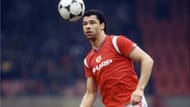
The Manchester United that Ferguson took over back in November 1986 were a very different animal to the dominant side they’d become less than a decade later. Sure, by reputation alone they were one of England’s biggest clubs, but they hadn’t won a league title since the 1966/67 season that preceded their European Cup triumph, and despite winning three FA Cups in the 80’s under Ron Atkinson and by the time ‘Big Ron’ was fired, the side were in danger of freefall.
Ferguson inherited a team of talented players, but many of his best – the likes of Bryan Robson, Paul McGrath, Norman Whiteside and Gordon Strachan – had a reputation for liking a drink a little too much. According to his autobiography, Ferguson immediately enforced a rule that no player must drink in training and spoke to his captain Robson about curbing the party lifestyle. Robson took the advice on board but few others followed suit.
Also read: 5 things you didn't know about Sir Alex Ferguson
When his warnings went unheeded, some of the worst offenders like Whiteside and McGrath were shipped out a couple of seasons after his arrival.
While it took a little longer for success to arrive at United – supposedly, Ferguson’s job hung on the result of an FA Cup third-round tie against Nottingham Forest in 1989; a tie they won before going on to lift the trophy – his attitude towards the prevailing lifestyle at United changed the face of the club and showed that under Ferguson, you towed the line or were simply removed from the picture.
#2 Standing by Cantona
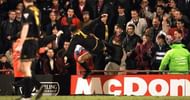
One of the biggest stars of Ferguson’s original Premier League title winning sides was French striker Eric Cantona. An amazingly gifted player, he was also an enigma with a volatile side, which was partly why United were able to get him so cheaply from rivals Leeds United. While 1993/94 saw Cantona help United to a second league title, finish as top scorer with 25 goals and be named PFA Player of the Year, controversy was never far from the Frenchman.
He’d already been involved in some unsavoury incidents – stamping on an opponent, spitting at a Leeds fan – when January 1995’s game against Crystal Palace saw him go way too far. Following a red card for a late tackle, Cantona launched himself into the crowd in order to kung-fu kick a Palace fan who decided to taunt him.
Charged with assault and hit with a sentence of 120 hours community service, Cantona was also banned from football for eight months by the FA, a ban upheld by FIFA as a worldwide one. It would’ve been easy for Ferguson to simply throw his striker under the bus and send him packing from Old Trafford, deeming him simply too much of a liability.
Instead, Fergie stuck by his man. While he never defended his actions, he did persuade Cantona to stay at United when he considered a move abroad and managed to prevent him from terminating his contract – instead, signing a new deal with the club.
It was a gamble that paid off for Ferguson. Cantona returned to action in October 1995 in a game with Liverpool, scoring and assisting in a 2-2 draw. From there he almost single-handedly led United to overhaul a 12-point gap between them and league leaders Newcastle United to allow the Premier League title to return to Old Trafford.
It was a phenomenal achievement that showed not only incredible talent from Cantona but also incredible judgment on the behalf of Ferguson, whose faith in ‘King Eric’ was repaid in the best possible way.
#3 Overhauling Arsenal in the late 1990’s
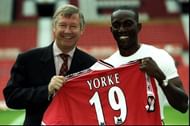
Despite breaking the British transfer record on more than one occasion, even his greatest detractors never really labelled Ferguson as a “chequebook manager” – something that the likes of Jose Mourinho and Pep Guardiola have to hear on regular occasion today. While he was willing to spend big money when he had to, Ferguson only ever looked to strengthen his side in the areas that appeared to be weakest.
One such example was the summer of 1998. The previous season had seen United unexpectedly overhauled by Arsenal – led by new boss Arsene Wenger, who brought with him some new philosophies and most importantly a handful of exceptionally talented players (Patrick Vieira, Nicolas Anelka, Emmanuel Petit) to add to the Gunners’ already tough British spine. Arsenal won both the Premier League and the FA Cup that year to leave Ferguson smarting.
Rather than totally changing up his squad, though, Fergie simply took a look at where they were weakest. A somewhat creaking defence was shored up by the purchase of Dutchman Jaap Stam, while Dwight Yorke was brought in from Aston Villa to provide a more creative feel to the forward line – something United had missed since Eric Cantona’s retirement at the end of 1996/97.
The summer of 1998 was a World Cup year and Ferguson could easily have been tempted into signing any number of players, but instead he stuck to his guns, adding just Stam, Yorke and midfielder Jesper Blomqvist. This allowed his squad to grow closer together, while also strengthening it where it was weakest.
Naturally, it paid off – Stam was outstanding, making 50 appearances, while Yorke formed a partnership with Andy Cole and the two scored 53 goals between them. United won a treble of the Premier League, FA Cup and Champions League in 1998/99 and the challenge of Wenger’s new-look Arsenal was largely thwarted for another three seasons. It was classic Ferguson - keeping faith with his side and not panic buying, allowing for more stability and thus more success.
#4 Dealing with mutinous players
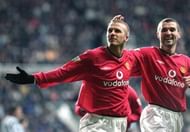
Despite overseeing multiple generations of players at Old Trafford, Ferguson never “lost the dressing room” – something that has happened to even great managers like Jose Mourinho and Antonio Conte. Part of this was down to his tremendous man-management skills, but perhaps the biggest factor in avoiding a situation like that was his sheer ruthlessness.
Under Ferguson, no matter how talented a player, they were simply never bigger than the club and thus were never given the chance to mutiny. Anyone seen as not towing the line was either quickly forced to change their tune, or simply drummed out of the club as quickly as possible, often in shocking fashion.
Some of United’s true greats weren’t above this treatment – inspirational captain Roy Keane was jettisoned in 2005 following an interview in which he criticised his teammates and a bust-up with assistant manager Carlos Queiroz; key defender Jaap Stam was sold to Lazio when it was revealed that he’d criticised United players in his autobiography; David Beckham went to Real Madrid when Ferguson began to believe his wife was having too much of an influence over him, and the list goes on.
By being so ruthless with even his best players, Ferguson kept a healthy culture of both respect and a needed fear at United, and it meant that he never lost control of the dressing room even for a split second. Other managers would’ve wilted under the challenge of such talented players but Ferguson was unrelenting – a factor that undoubtedly helped him to succeed.
#5 Quietening the noisy neighbours
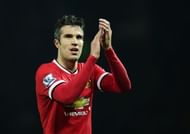
By the later years of his reign, Ferguson had overcome a myriad of challenges from other clubs and managers. The likes of Kenny Dalglish, Kevin Keegan, Arsene Wenger and Jose Mourinho had certainly tested his mettle, but all had eventually been overcome by hook or crook. In 2008, though, a new challenge began to emerge in the form of United’s “noisy neighbours” Manchester City.
City were taken over by the Abu Dhabi Group and began to spend insane amounts of money in order to become title challengers. It took four seasons, but by 2011/12 – bolstered by world-class players like Yaya Toure, David Silva and Sergio Aguero – it was clear that City were now the biggest challenge to United’s – and Ferguson’s – dominance over the Premier League. Indeed, after the tightest league title race ever, City finished the season as champions, beating United via goal difference as the sides finished on the same points.
It would’ve been easy for Ferguson to throw in the towel there – he’d had over 20 years of success at United and by the summer of 2012, it was simply impossible for the Red Devils to match City’s spending power. But instead – almost mirroring the way he led United to bounce back against Arsenal in the late 1990’s – Ferguson kept faith with his side and added one key player – Arsenal’s Robin van Persie, who Ferguson hoped would add the goals United had missed since losing Cristiano Ronaldo three years prior.
Despite leading a largely ageing squad – with the likes of Rio Ferdinand, Patrice Evra, Michael Carrick and Ryan Giggs all past their primes – Ferguson was able to overcome the challenge of City one last time, as he took United to a 20th league title before retiring at the end of the season, with Van Persie hitting 30 goals to show exactly why he was such an important signing.
